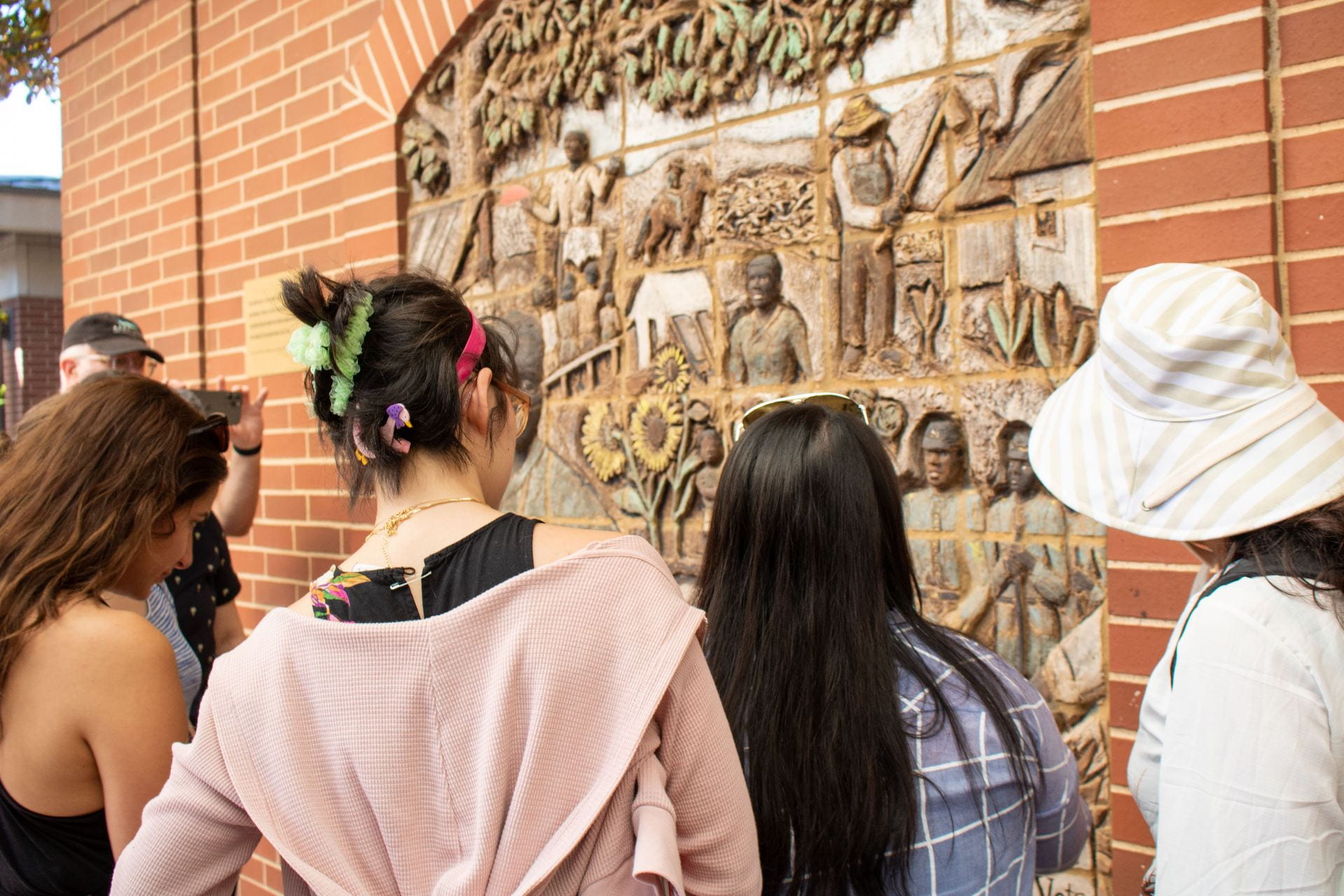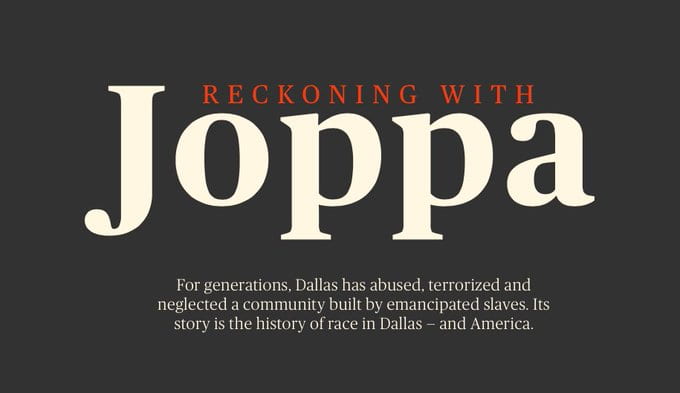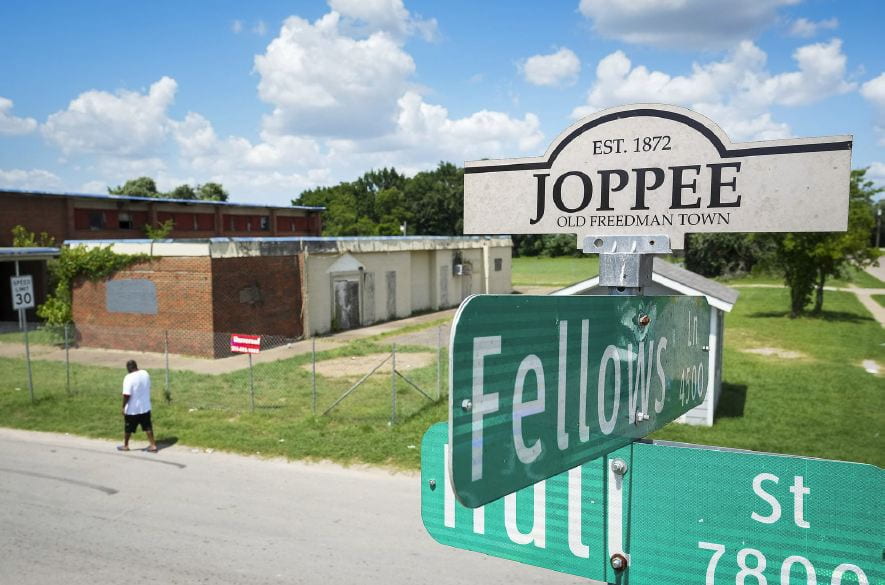Reclaiming Black Settlements
A Design Playbook for Historic Communities in the Shadow of Sprawl
![CAPPA_Grey_SMText[WEB]](https://websites.uta.edu/dilloncenter/files/2018/10/CAPPA_Grey_SMTextWEB-632x98.png)
Historic Black settlements in urban contexts across the United States are subjected to environmental and industrial hazards that jeopardize their health and survival. In a pattern repeated in city after city, these settlements developed in flood plains or “Bottoms” along rivers and creeks in ”throwaway” land deemed uninhabitable by white city planners. Today, as riverfronts become desirable property located along recreational waterfront trail systems and brownfield developments become increasingly common in urban centers, these longstanding communities face new development challenges in the context of urban sprawl. In Dallas-Fort Worth, historic Freedman’s Towns along the banks of the Trinity River all face similar challenges: how to promote new development that serves community residents, respects descendants of community founders, and gives control over design and decision making to grass roots organizations. Questions about the role of environmental justice, historic preservation and economic development in shaping the future of historic Black settlements are central to defining an equitable future.
This project maps the commonalities and challenges of Black settlements along the Trinity while also focusing closely on the Joppa/Joppee community to develop a holistic community design playbook. Through partnership with the South Central Civic League, the research team will develop best practices for negotiating complex regulatory policies, with techniques and strategies transferable to other communities impacted by long-standing patterns of structural racism. With a focus on grass-roots storytelling and capacity building, the design playbook will center the voices of Black communities in design decision making processes in a complex and fragmented policy landscape.
This project will bring together faculty and students in architecture, landscape architecture, planning, policy, and historic preservation to develop a design playbook particular to the needs of historic Black settlements exposed to risks of top-down development in the wake of explosive urban development and sprawl. To develop the playbook we will look at contemporary and historic land use patterns, environmental and ecological challenges, population movement, community organization, zoning patterns, economic development policies, and patterns of demolition and preservation of historic structures and landscapes. Our study area is the watershed of the Trinity River in the Dallas-Fort Worth, which spans just under 100 miles. Historic Freedman’s Towns, Black settlements founded by formerly enslaved Texans, dot the river banks, from Joppa to The Bottom, Elm Thicket, Bear Creek, Mosier Valley, and Garden of Eden. Each of these historic settlements survives today and they are effected by similar issues of environmental racism and outside development pressure. However, they are located in different cities and counties and governed by different local policies controlling land use, zoning, development, and preservation. Alone, each singular community faces significant hurdles to achieving equitable development—collectively, they gain significant strength.
A potential solution is a design playbook that standardizes the approach to common issues: vacant land, demolition of historic structures, lack of community development guidelines, environmental hazards from flooding and industrial land use, and development pressure from coming recreational trail planning along the Trinity River. Capacity building in fragmented community organizations is a key goal. Through the School of Architecture and Program in Landscape Architecture, an interdisciplinary studio, community workshops, and a symposium organized through the Dillon Center will provide the framework for the research project. Across the one-year timeline, a research group composed of the three faculty members and three graduate student research assistants as well as community members from the South Central Civic League will collaborate to develop the playbook.
This work is supported by the 2020 SOM Foundation Research Prize. Learn more about the SOM Foundation here.
STUDENTS & FACULTY
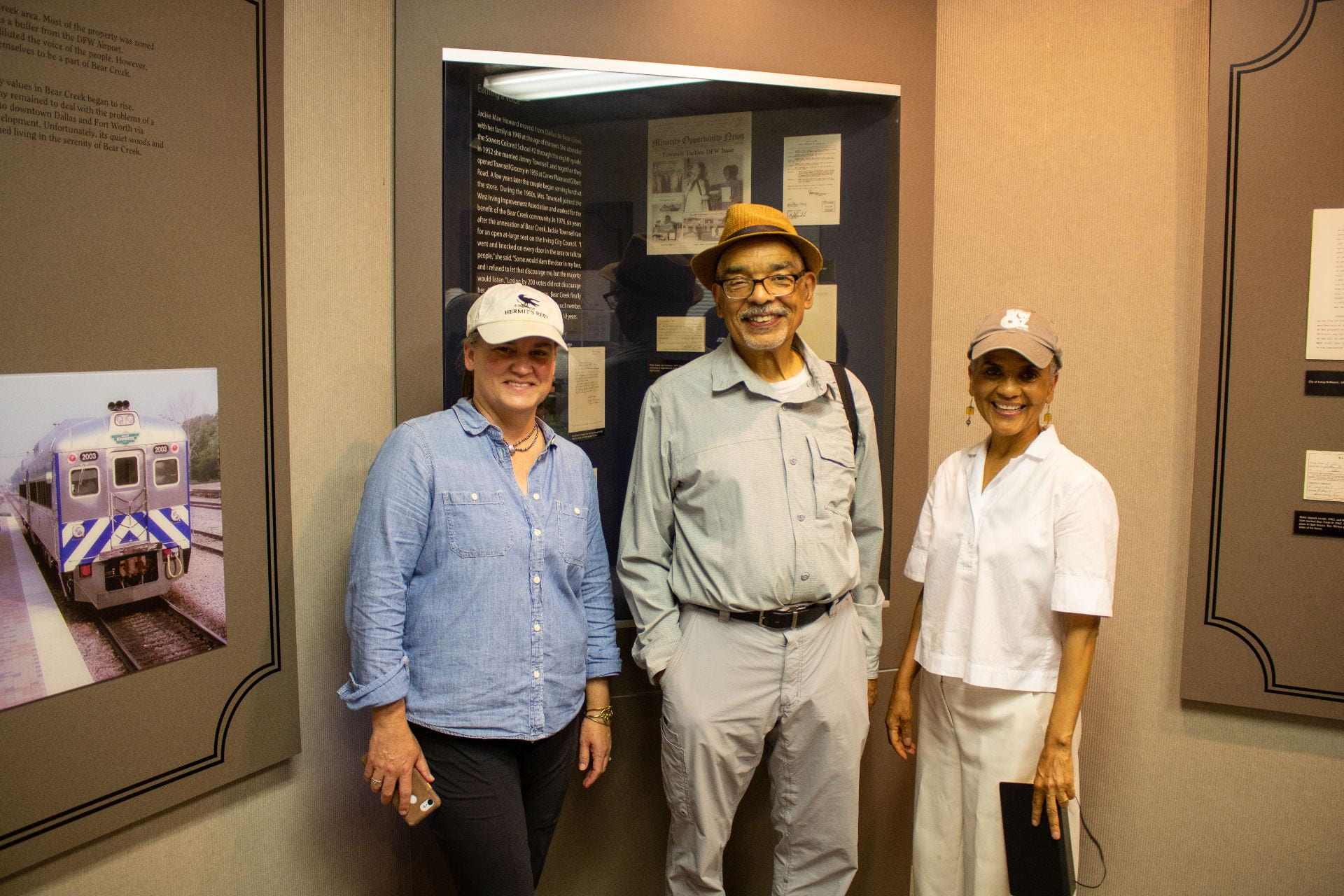
COMMUNITIES
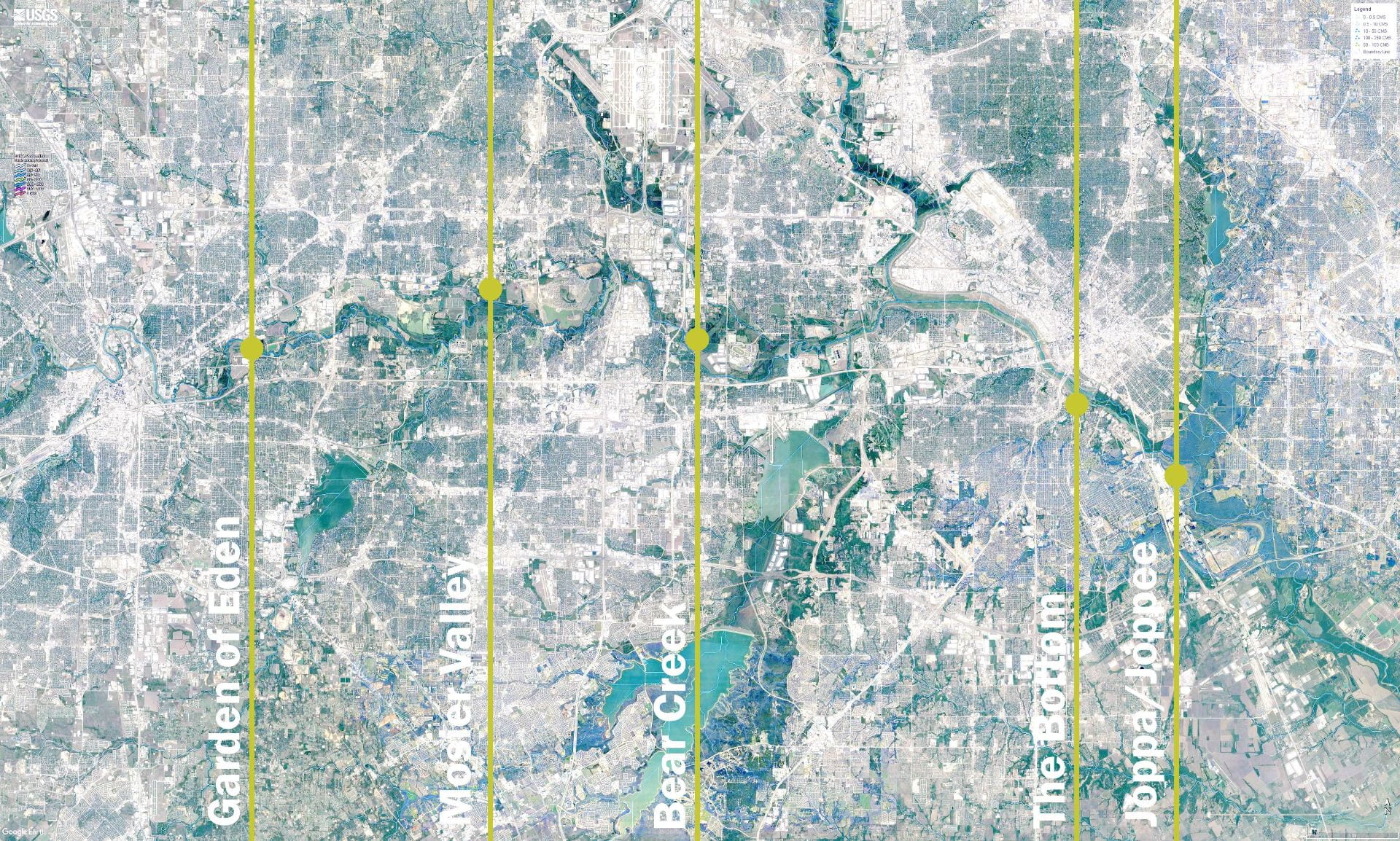
COMMUNITY BUS TOUR
June 16, 2021
Faculty and graduate students visited 5 communities in Dallas-Fort Worth along the Trinity River as part of the summer studio. These communities are visibly shaped by the political, social and environmental choices of the last 2 centuries, oftentimes bearing the negative side effects of those choices. Many of these communities are freedman’s towns, being founded by formerly enslaved people, with rich cultural and historical significance. Today, these same communities face the pressures of gentrification, with developers seeking land close to the river. The goal of this class is to explore and uncover design solutions which can empower these communities to preserve their own legacy. The first step in that process is meeting with the neighborhoods to learn what they want for themselves.
Shelton’s Bear Creek Cemetery
In Fall 2021, a group of graduate students in landscape architecture and in public history followed up the Summer Studio by working with descendants from the Bear Creek Community to supporting their advocacy for their community cemetery. The students created the web site linked below that outlines community and cemetery history and advocates for design changes that will allow improved access to this cemetery that provide honor and respect to the enslaved ancestors of Bear Creek community members.

